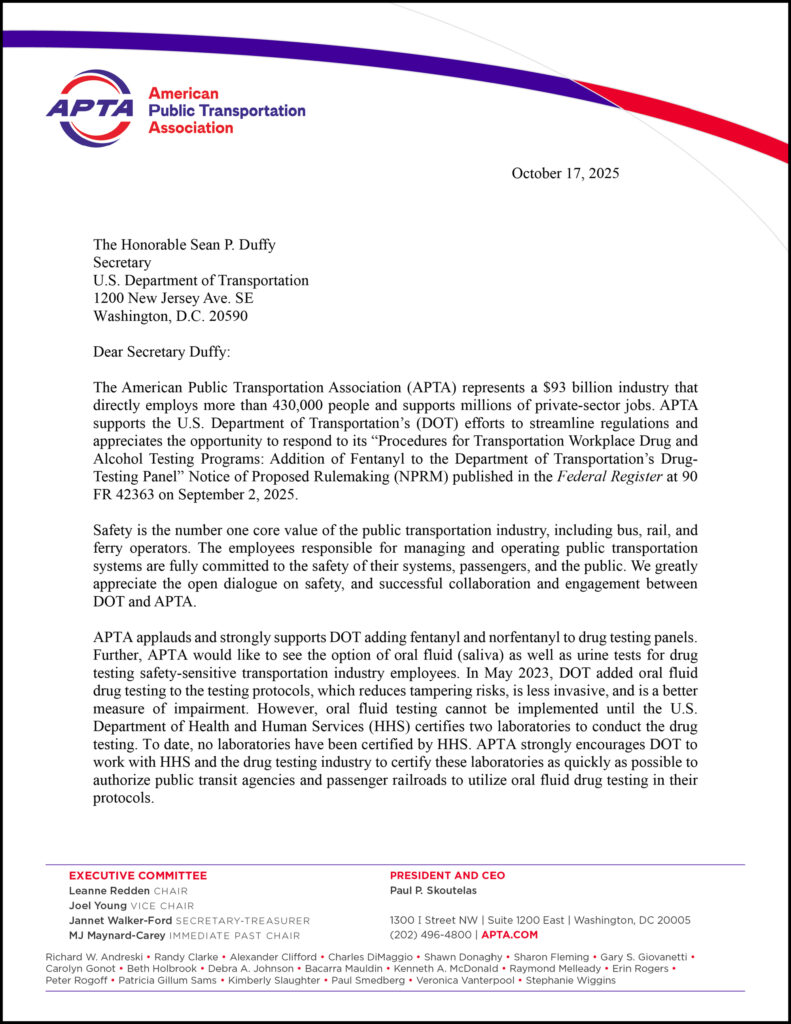APTA Supports Proposed Addition of Fentanyl to Drug Testing Protocols, Recommends Saliva and Urine Test Options
10/20/2025
USDOT proposes to amend its drug-testing program regulation, 49 CFR part 40, to add fentanyl and norfentanyl to its drug testing panels. The proposed rulemaking would harmonize part 40 with the U.S. Department of Health and Human Services Mandatory Guidelines for Federal Workplace Drug Testing Programs. APTA submitted comments in support of this proposal Oct. 17.
In its letter to U.S. Secretary of Transportation Sean P. Duffy, APTA President and CEO Paul P. Skoutelas stated: “APTA supports the U.S. Department of Transportation’s efforts to streamline regulations and appreciates the opportunity to respond to its Procedures for Transportation Workplace Drug and Alcohol Testing Programs: Addition of Fentanyl to the Department of Transportation’s Drug Testing Panel Notice of Proposed Rulemaking.
“Safety is the number one core value of the public transportation industry, including bus, rail, and ferry operators. The employees responsible for managing and operating public transportation systems are fully committed to the safety of their systems, passengers, and the public. We greatly appreciate the open dialogue on safety, and successful collaboration and engagement between USDOT and APTA.
“APTA applauds and strongly supports USDOT adding fentanyl and norfentanyl to drug testing panels. Further, APTA would like to see the option of oral fluid (saliva) as well as urine tests for drug testing safety-sensitive transportation industry employees. In May 2023, USDOT added oral fluid drug testing to the testing protocols, which reduces tampering risks, is less invasive, and is a better measure of impairment. However, oral fluid testing cannot be implemented until the U.S. Department of Health and Human Services (HHS) certifies two laboratories to conduct the drug testing. To date, no laboratories have been certified by HHS.
“APTA strongly encourages USDOT to work with HHS and the drug testing industry to certify these laboratories as quickly as possible to authorize public transit agencies and passenger railroads to utilize oral fluid drug testing in their protocols.”
